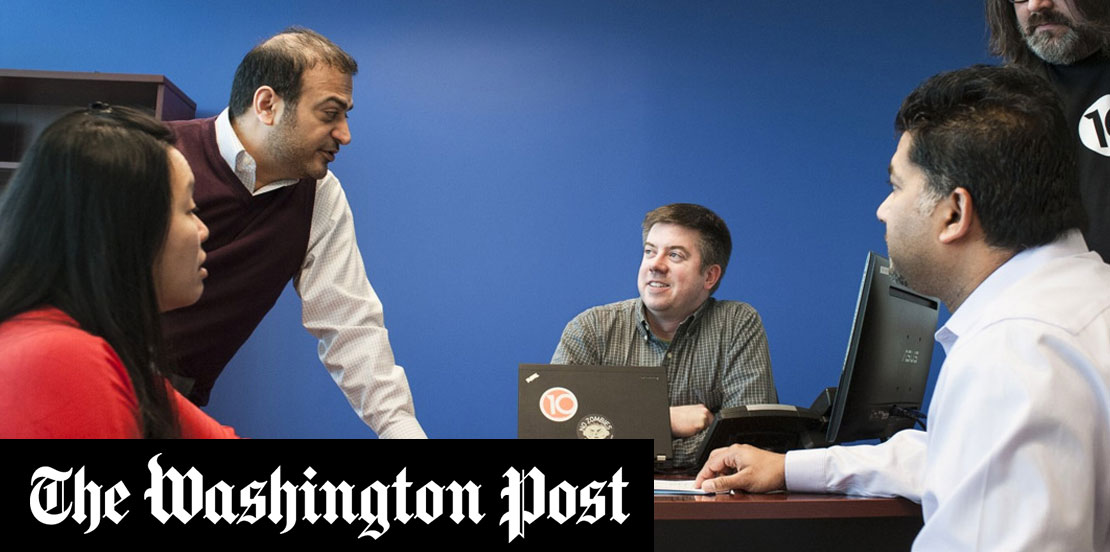Read the complete story in The Washington Post
Pakistan-born Imran Aftab was traveling in 2004 when an AOL Time Warner colleague posed a rude question.
“Imran, you’re from Pakistan, yet you seem normal,” Aftab recalled. “What is the problem with the rest?”
Aftab, then director of global outsourcing at AOL, spent half an hour explaining that there was more to the millions of Pakistanis than the public perception after the Sept. 11, 2001, tragedy.
“People see all bad news. I thought, ‘How can I change things even at a small scale through business?”
After that trip, the chemistry major decided to use his knowledge of outsourcing at AOL to start his own business that could make money while also helping his fellow citizens in Pakistan.
The business he created is called 10Pearls, a profitable custom software company based in Herndon, Va., and Pakistan. The company has more than 150 software experts supervised by Aftab’s brother in a 33,000-square-foot office in Karachi. Only about 15 employees work in Herndon.
Aftab creates customized software for all kinds of interfaces, including mobile platforms, kiosks and Web sites. Clients include NVR, Time Warner Cable, Discovery Education, National Geographic and Zubie, a spinoff of Best Buy.
For Zubie, 10Pearls helped develop an Android and Apple application that allows people to see where their cars are located, diagnose auto repair issues and track historic routes.
Although 10Pearls is relatively small, with revenue of less than $10 million, Aftab said it has been profitable since it began 11 years ago, making Web pages for handyman businesses.
The company, which Aftab calls a social experiment, reminds me of the “double bottom line” businesses that Washington sports mogul Ted Leonsis espouses. That refers to businesses that earn profits while accomplishing some social good.
“I see that business causes positive impact,” said Aftab, who makes three visits a year to his native country. “It can change things even at a small scale. Business is a good way for people to learn about each other.”
The enterprise isn’t all about altruism.
Pakistan is a good candidate for outsourcing because of its large English-speaking population — 180 million or so — that is tech-savvy and has mathematical skills. Its labor costs are also far below those of the United States and other developed countries.
The labor-cost difference, which Aftab refers to as “a labor arbitrage,” is helping drive his profit margins. He calls it a “blended shore model.”
Pakistani software developers earn about a third to half of what it costs to hire someone with similar talents in the United States. When the less-expensive labor in Pakistan is “blended” into the entire cost structure of the company, it increases 10Pearls’ competitive position.
To lure creative millennials, Aftab owns a sister company called Game Plan8, which produces car racing, zombie and other games for mobile platforms.
“People in this day and age want to be motivated intrinsically,” Aftab said. “It’s a sense of achievement that they build a game that people are playing around the world.”
Aftab’s first break in life came early. He had dropped out of an elite Jesuit high school in Karachi because his family could not afford the tuition.
The principal of the school called in Aftab and his father.
“I still remember the day when I sat across [the principal’s] desk accompanied by my late father. I had dropped out of school, unable to continue the higher education in this private school, due to the financial hardships that my family was facing. Bishop Lobo slipped a white piece of paper in front of us and in his booming voice said, ‘Please write down the amount you can afford.’ ”
